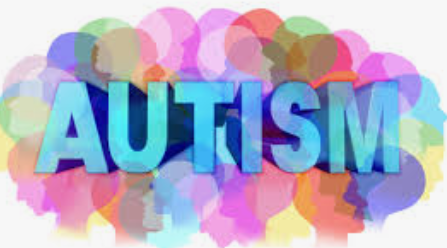Omega-3 supplements could be just as effective as drugs for some children with ADHD, a study suggests.Researchers found fish oil helped youngsters with attention deficit hyperactivity disorder to focus, if they were deficient in the nutrient. However, it did not help and even had the opposite effect in children who already had healthy or high levels of omega-3, which is most commonly got from fish.
Scientists said their trial laid a path for ‘nutritional interventions’ but that parents should always check with a doctor first. Hundreds of thousands of children in the UK and around six million in the US are believed to have attention deficit hyperactivity disorder (ADHD) and struggle to concentrate as a result.
King’s College London researchers trialled omega-3 supplements on 92 children with ADHD between the ages of six and 18 in Taiwan. They focused on eicosapentaenoic acid (EPA) and gave all the children either that or a placebo for 12 weeks. Among the children who had naturally low EPA and got supplements, the scientists noticed ‘improvements in focused attention and vigilance’. There was no improvement, however, for children with normal starting levels of EPA, the academics found.
And for those youngsters who naturally had a lot, they became more impulsive which suggested the supplements had an opposite effect to what was intended. For those children with omega-3 deficiency, fish oil supplements could be a preferable option to standard stimulant treatments,’ said Professor Carmine Pariante, a senior psychiatry researcher. ‘Our study sets an important precedent for other nutritional interventions, and we can start bringing the benefits of “personalised psychiatry” to children with ADHD.
‘In the UK children with ADHD who need medication are usually given drugs known by the brand names Ritalin, Vyvanse, Strattera or Tenex. Although effective, these medicines can alter children’s moods, lead to anxiety or depression, make people drowsy or give them sleep problems.
Low levels of omega-3 fatty acids have in the past been linked to higher rates of severe ADHD. But past studies looking at the relationship between omega-3 supplements and ADHD found they didn’t make much difference. This could be because only a specific subset of people are likely to find the treatment useful. Dr Jane Chang, one of the lead researchers, said: ‘Our results suggest that fish oil supplements are at least as effective as conventional pharmacological treatments among those children with ADHD who have omega-3 deficiency.
On the other hand, it is possible to have too much of a good thing, and parents should always consult with their children’s psychiatrists since our study suggests there could be negative effects for some children. ‘Omega-3 fatty acids could be useful for improving children’s brain health because the body uses them to help construct cells around the body and inside the brain. Evidence also suggests they can have antioxidant effects and reduce swelling, which may encourage healthier brain cells and reduce the risk of dysfunction. Professor Kuan-Pin Su, from China Medical University in Taiwan, added: ‘High blood-levels of EPA without using supplements can be achieved through a good diet with plenty of fish, which is common in some Asian countries like Taiwan and Japan.
It is possible that EPA deficiency is more common among children with ADHD in countries with less fish consumption, such as in North America and many countries in Europe, and that fish oil supplementation could therefore have more widespread benefits for treating the condition than in our study. ‘ Dr Jessica Agney-Blais, a psychiatry researcher at King’s College London, was not involved with the research but didn’t agree with Dr Chang’s assessment of the study.
She said: ‘The findings from this study offer the interesting suggestion that benefits of fish oil supplementation for performance on some neuropsychological measures of attention may be specific to those with lower levels of eicosapentaenoic acid (EPA) at baseline.
However, these findings remain suggestive given the small number of participants (29) with low baseline EPA levels (so, about 15 people in the fish oil group compared to about 15 in the placebo group). ‘It is very important to keep in mind that this study did not find any benefit of fish oil supplementation over placebo on ADHD symptom levels or emotional problems among participants.
‘These are outcomes that many studies find do improve with conventional pharmacological treatments for ADHD. ‘Therefore, these findings do not suggest that fish oil supplementation is better – or as effective – as stimulant medication in treating ADHD symptoms.’
Nature


